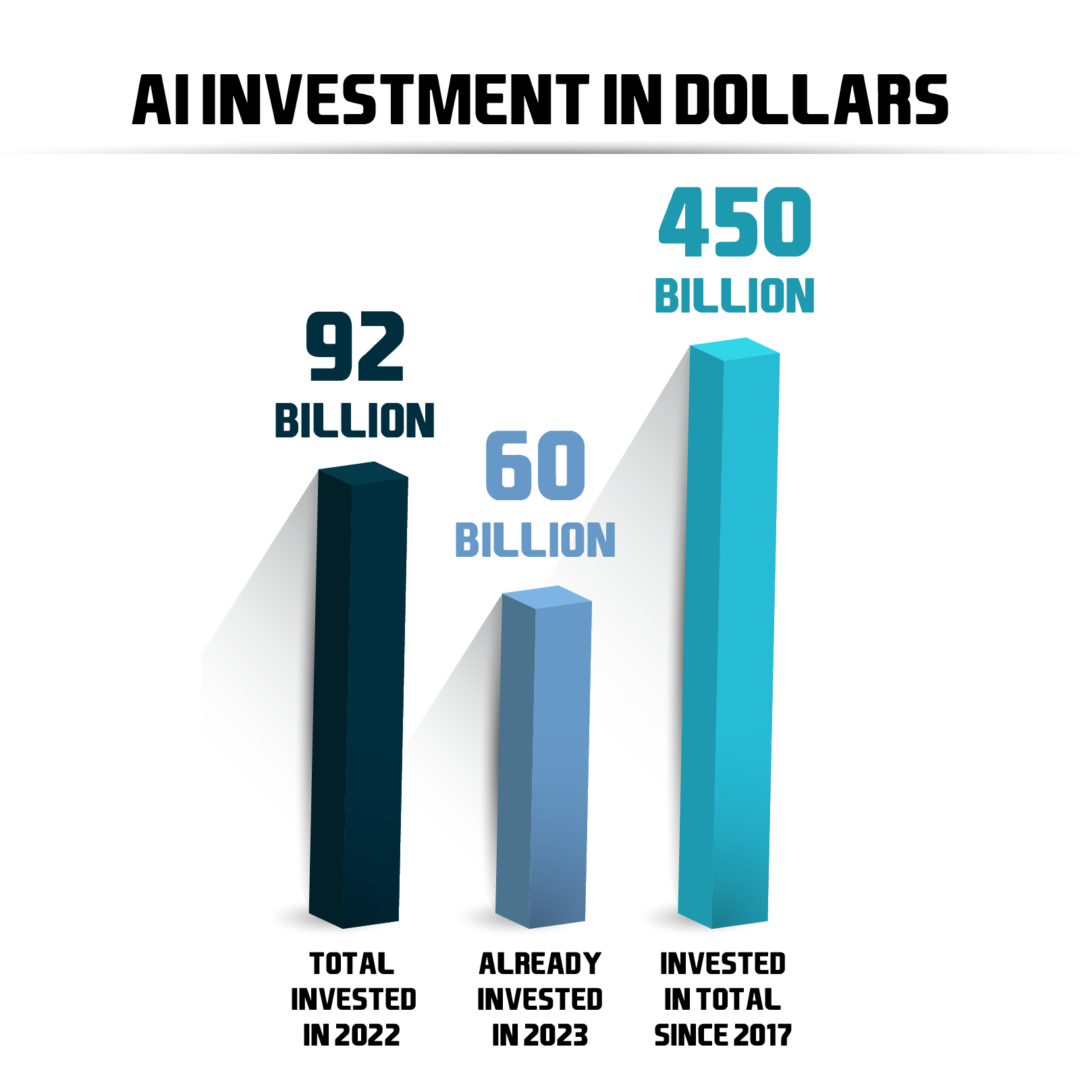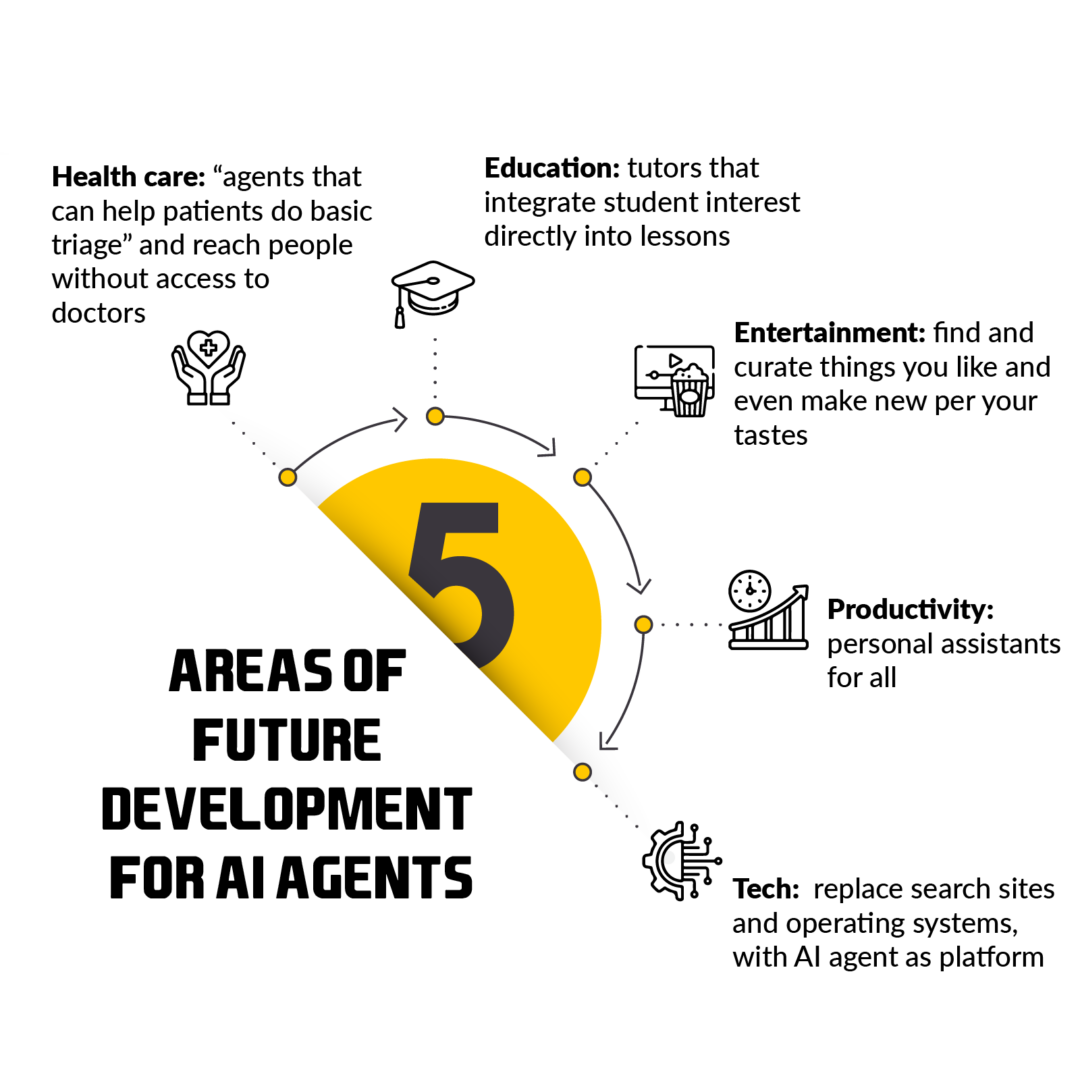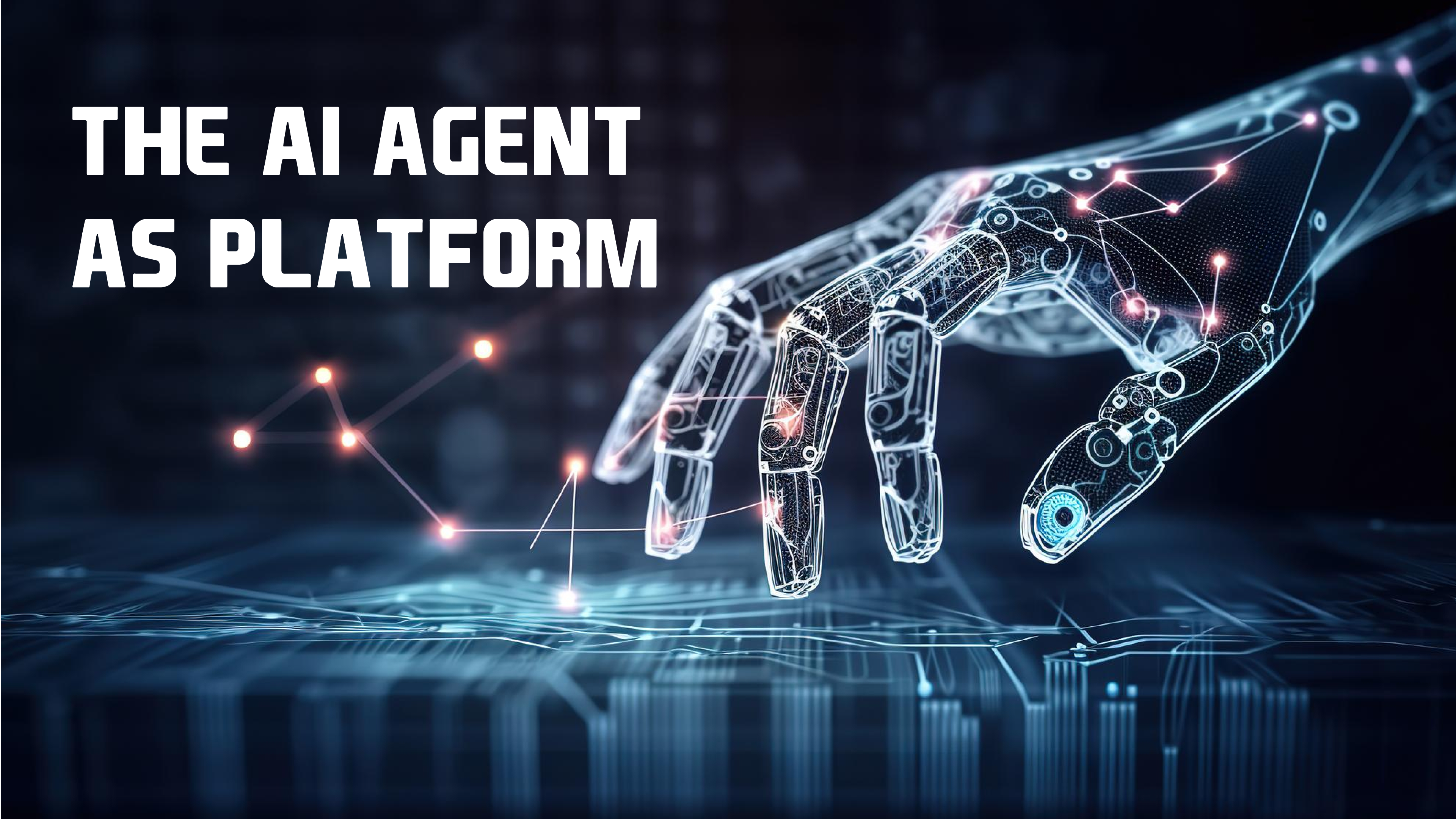Companies have been pouring a stunning amount of their resources into AI development. Gaudy statistics detail the AI explosion in almost every arena, with generative AI at the forefront.

Maybe you’re like the hundreds of millions of people who’ve already chatted with AI OpenAI’s ChatGPT, or maybe AI is already a part of your workflow. Regardless, the biggest question may be what’s next, as we turn the corner from chatbots and art generation, and move into a widespread, practical integration of AI into our daily lives.
Bill Gates drafted a recent essay on Reddit sharing his view of what this may look like, describing how AI could evolve into agents, a kind of software like a personal assistant that can free us from having to move between various, siloed applications. “In the next five years,” Gates writes, “this will change completely. You won’t have to use different apps for different tasks. You’ll tell your device, in everyday language, what you want to do.”
With AI moving from application to service platform, the land rush is on to attract users to each AI brand, hoping their ecosystem, as with cloud platforms, may remain the flavor of choice for years to come. The days of buying an operating system or software package are already gone, shifting to the software-as-a-service model with its regular subscription, fueling dynamically changing AI models.
This article looks at some ways this process of AI as an agent is already underway, and what risks this explosive opportunity holds.
AI’s agency is already increasing.
The goal of AI is to accomplish things, not just talk about them, and that requires increased access, and specificity. As detailed in this New York Times article, researchers at Nvidia have already used ChatGPT’s technology to build an AI agent they taught to fully play Minecraft, in just weeks. “Inside Minecraft’s digital universe, it learned to swim, gather plants, hunt pigs, mine gold, and build houses.”
From this model, it’s clear to see how similar agents can be developed to complete all kinds of tasks people do now, such as travel agency (the AI learns what you want and when, how much you can spend, and it does the research and makes arrangements), writing business plans (create to-do lists and organizational charts, develop presentations, logos, product images, budgets), and, with plug-ins like OpenAI’s ChatGPT Plus, writing code that can then make use of the widely available APIs. With the capacity to write and execute code itself, AI’s power is radically increased. Check out this PTP piece on the concept of citizen development’s possibilities with AI.
The option to create your own personalized agent is already here for ChatGPT Plus subscribers, with the option to upload custom data to the AI and grant it access to things like web browsing, image creation, and even software writing and execution.
Bill Gates projects these developments expanding into many aspects of life:

Phones, glasses, earbuds, or pins?
If AI agents are the future, how will we interact with them? Companies are already banking on a variety of formats, from PCs, phones, visors or glasses, and earbuds.
Meta is currently developing smart glasses with an AI agent that can pair with apps like Spotify or Instagram, answer phone calls, and take pictures. It’s clear how this layer of intelligent interaction could change our experience in the world, with an agent who can see what we see when we see it.
For those troubled by the privacy concerns of such a wearable, researchers at Cornell University have coupled sonar technology with AI for an attachment for regular glasses that doesn’t even require a camera, giving a low-power and low-cost option to accurately track body position in 3D. This could allow for more affordable augmented or virtual reality, as it charts highly detailed human activity for purposes like health care.
Startup Humane landed more than $230 million in funding—including investments from OpenAI’s CEO, Salesforce’s CEO, and Microsoft—to build an AI pin they present as a screenless, smartphone alternative. Akin in some respects to a police body camera (but much smaller), their pins attach through clothing magnetically, with a built-in battery pack, camera, and a means of projecting visuals when needed onto a user’s hand.
The race to opportunity and/or catastrophe.
With agents signaling a move away from traditional operating systems, there’s an enormous opportunity to reinvent a core service central to our daily lives. Check out this PTP article for a discussion of the rise and capacity of low-code and no-code software-as-a-service solutions, such as AWS’s AppFabric (which is adding AI now).
With unique AI models each having its own flavors—leading to separate plugins, communities, and systems built on top of them—companies must be eager to stake their claim for what could be the next iOS, Android, or Windows.
As this PTP article discusses, the breakneck pace of this innovation poses serious dangers. Generative AIs struggle currently with hallucination (as detailed in this PTP article, a problem that caught up Humane in a recent promotional video when their pin provided inaccurate responses to prompted questions. Clearly, this issue must be minimized, and fast, as AI expands to less trivial parts of our lives.
There are also significant privacy concerns, both in the data on which the AIs are trained and in the vast amounts of personal data agents will collect from us. For companies primarily in the advertising business, how can we be sure our daily experiences—with AI agents having access to what we see and hear even as we navigate the world—aren’t being sold to third parties without our consent?
ChatGPT had to temporarily freeze onboarding new ChatGPT Plus members a week after the service was hacked, citing server limitations and the incredibly high cost of running their AI service. With access to ever more data, and increasing power, who can ensure these AI agents will be kept as secure, reliable, and private as possible?
How will bad actors kept from using agents for dangerous ends? And to protect against this, what values will be infused in each system, to keep users protected?
As with all AI, the emerging future poses existential questions. “There will come a point where no job is needed,” Elon Musk said in a conversation with British Prime Minister Rishi Sunak, “…the AI will be able to do everything.” In a world where AI agents could suddenly eliminate the need for hundreds of millions of jobs, how do those displaced people make ends meet?
Conclusion
The Center for AI Safety, a non-profit that exists to help decision-makers understand the dangers of AI, warns about several categories of catastrophic AI risks. One of these is an “AI race,” where competition might fuel irresponsible development, with near limitless reach. With AI already being given increased access to search the web, handle our personal data, and write and implement its own code, it’s clear that serious safeguards will be needed as we prepare to face this exciting future.
While the development of AI agents can be frightening, it could also provide great opportunities, freeing people from tedious work and giving far greater access to education and healthcare expertise.





 Work with us
Work with us